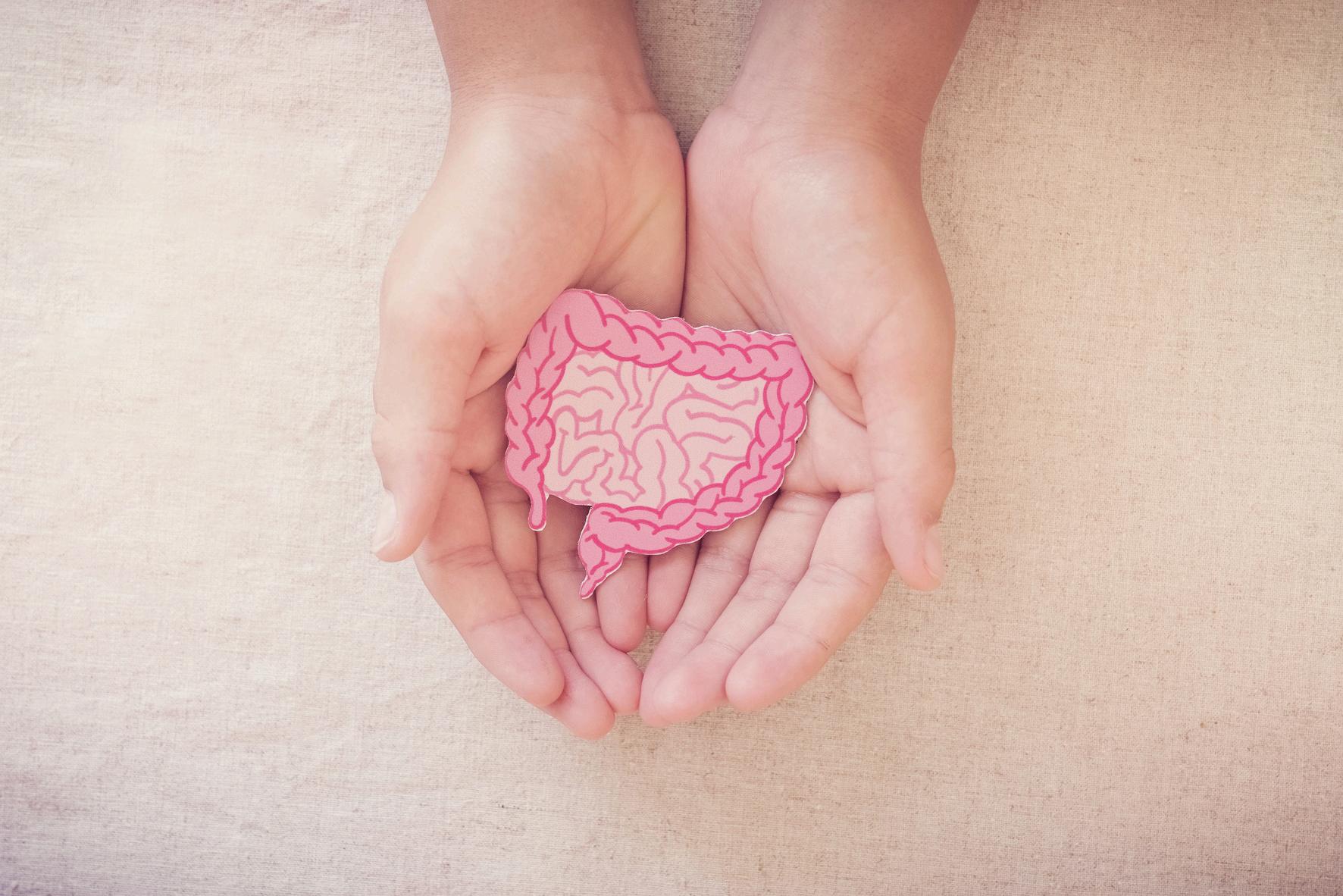11 Easy Ways To REGENERATE Your Brain And Avoid Cognitive Decline









As we navigate our 40s, 50s, and beyond, we might start noticing changes in our cognitive function. Maybe you're not as quick with numbers as you used to be, or find yourself forgetting names more often. Perhaps you're worried about your parents' memory lapses and fear that'll be your fate too.
According to the World Health Organization, around 55 million people have dementia worldwide, and there are nearly 10 million new cases every year. The total number of people with dementia is projected to reach 78 million in 2030 and 139 million in 2050. [1]
But here's the good news: cognitive decline isn't inevitable. Our brains have an incredible ability to adapt, grow, and even regenerate throughout our lives. This process, known as neuroplasticity, means that with the right strategies, we can actively support our brain health and potentially ward off cognitive decline.
In this guide, you’ll explore 11 easy-toimplement ways to regenerate your brain and maintain cognitive vitality.
Let's dive in and discover how you can keep your mind sharp and your memory strong!
We all know sleep is important, but did you know it's absolutely crucial for brain health? While you're catching those Zzzzs, your brain is hard at work cleaning house and consolidating memories
During sleep, your brain activates its glymphatic system – a network of vessels that flush out toxic, memory-impairing proteins that accumulate between brain cells during the day. [2] It's like a nighttime cleaning crew for your brain!
Moreover, research has shown that poor sleep quality and short sleep duration are associated with an increased risk of cognitive decline and dementia [3]
So, getting enough high-quality sleep isn't just about feeling refreshed – it's about protecting your brain health
Here are some tips to improve your sleep:
Stick to a consistent sleep schedule
Even on weekends. Maintaining a consistent sleep schedule helps regulate your body's internal clock, making it easier to fall asleep and wake up naturally
Create a relaxing bedtime routine
To signal your body it's time to wind down.
Limit exposure to blue light from screens at least 2 hours before bedtime
As blue light suppresses the production of melatonin, a hormone that regulates sleepwake cycles

Expose your eyes to at least 20 minutes of daylight
Immediately upon waking. This will tell your brain it is morning and also help boost melatonin at night
Create an optimal sleep environment
Keep your bedroom cool, dark, and quiet.
Avoid caffeine after noon and limit alcohol consumption
Caffeine is a stimulant that can stay in your system for hours, while alcohol may help you fall asleep but often leads to disrupted sleep later in the night
Remember: Sleep isn't a luxury – it's a necessity for brain health. Make it a priority, and you’re sure to see improvements in your cognitive function and overall well-being

Remember: The best exercise is the one you'll actually do consistently. Find activities you enjoy, and your brain will reap the rewards!
Aim for at least 150 minutes of moderate aerobic activity or 75 minutes of vigorous aerobic activity a week Exercise regularly
Incorporate strength training exercises
At least twice a week Strength training exercises do more than just build muscle They help keep your bones strong and boost your overall health. This indirectly helps your brain by improving blood flow and keeping your hormones balanced
You've probably heard that exercise is good for your heart, but did you know it's also fantastic for your brain?
Regular physical activity has been shown to increase the size of the hippocampus, the part of the brain involved in verbal memory and learning. [4]
Exercise increases blood flow to the brain, delivering oxygen and nutrients that brain cells need to thrive. It also stimulates the production of growth factors chemicals that affect the growth of new blood vessels in the brain and the survival of new brain cells [5]
But here's the really exciting part: aerobic exercise has been shown to increase the size of the anterior hippocampus, leading to improvements in spatial memory [6] In other words, regular exercise can actually help grow your brain!
You don't need to become a marathon runner to reap these benefits Here are some simple ways to incorporate more movement into your day:
Dancing, swimming, cycling, or brisk walking all count. Try activities you enjoy so you actually do them
Take short walking breaks
Throughout your day, especially if you have a sedentary job. It gets your blood flowing, which means more oxygen and nutrients reach your brain cells Plus, it helps shake off the negative effects of sitting for long periods These little breaks can also refresh your mind, helping you focus better when you return to your tasks

Chronic stress is like kryptonite for your brain
When you're constantly stressed, your body releases high levels of cortisol, which, over time, can damage the hippocampus – the brain's memory center
Moreover, chronic stress has been linked to an increased risk of cognitive decline and dementia [7] It can also interfere with sleep, disrupt your gut microbiome, and promote inflammation, which can negatively impact brain health
But don't stress about stress!
Remember, some stress is normal and even beneficial We want to avoid chronic, unmanaged stress. By implementing stressmanagement techniques, you're not just feeling better but actively protecting your brain health.
Here are some effective ways to manage stress:
Regular meditation has been shown to reduce stress and even increase gray matter in the brain. [8] Practice mindfulness meditation
Exercise is a great stress-buster. It releases endorphins, which improve mood and reduce stress. Engage in regular physical activity
Consider adaptogenic herbs
Herbs like ashwagandha and rhodiola can help your body adapt to stress more effectively
Try the 4-7-8 breath
Simply inhale through your nose for 4 seconds, hold at the top for 7 seconds, then breath out through your mouth for 8 seconds Repeat 5-10 times Breathing techniques like this can activate your body's parasympathetic relaxation response
Prioritize social connections
Strong social ties have been linked to lower stress levels and better cognitive health [9]
In our digital age, it's easy to feel connected while being quite isolated But when it comes to brain health, there's no substitute for real, meaningful social connections
Research has shown that people with strong social ties have a lower risk of cognitive decline than those who are more socially isolated [10]
Social engagement challenges our brains, helps manage stress, and even boost our mood – all of which contribute to better brain health

Here are some ways to stay socially active:
Join a club or group
That aligns with your interests.
Schedule regular catch-ups
With friends and family
Consider joining a support group
If you're going through a challenging time
Volunteering not only helps others but also keeps you engaged, gives you a sense of purpose, and connects you with new people Volunteer in your community
Take a class or workshop
You'll learn something new and meet like-minded people.
Remember, quality matters more than quantity when it comes to social connections. Focus on nurturing positive and supportive relationships. These real, meaningful connections can make a big difference in how well your brain works and how good you feel overall It's like giving your brain a friend to lean on!
You might be surprised to learn that one of the potent ways to support your brain health ac starts in your gut That's right – your digestive s and brain are closely connected through the brain axis
Your gut is home to trillions of tiny organism make up your microbiome. These little critters huge role in producing chemicals your brain u function. In fact, about 95% of your body's sero (a chemical that helps you feel good) is made in gut! [11]
When your gut microbiome is out of balance lead to inflammation, which has been link cognitive decline and brain diseases like Alzheimer's [12]

Remember: By caring for your gut, you're laying a solid foundation for optimal brain health It's a simple yet powerful way to support your cognitive function as you age So, how can you take care of your gut and your brain at the same time? Here are some simple strategies:
Eat a variety of colorful fruits and vegetables
These foods are rich in fiber and nutrients that feed the good bacteria in your gut
Choose brain-boosting foods:
Chlorella, rich in omega-3 fatty acids
Berries, packed with antioxidants
Leafy greens, high in brainhealthy nutrients
Nuts and seeds, excellent sources of vitamin E
Turmeric, which has antiinflammatory properties
Include fermented foods
Things like yogurt, kefir, sauerkraut, and kimchi contain probiotics that can help balance your gut microbiome and increase the population of your beneficial bacteria.
Limit processed foods and sugar
These can disrupt your microbiome and promote inflammation.
Consider a probiotic supplement
Look for one with multiple strains of beneficial bacteria
VitaminDplaysacrucialroleinbrain health [13]Yourbodymakesitwhen yourskinisexposedtosunlight,but manypeopledon'tgetenough. Optimize your Vitamin D levels
Get some (healthy) sun exposure: Aim for 10-30 minutes of midday sun several times per week.
Consider a supplement: Many people, especially those in northern areas, may benefit from vitamin D supplements Always check with your doctor first

Just like your muscles need exercise to stay strong, your brain needs regular workouts to stay sharp. Learning new skills and engaging in mentally stimulating activities can help create new neural connections and strengthen existing ones – a process known as cognitive reserve [14]
Research has shown that people with greater cognitive reserve are better able to stave off symptoms of degenerative brain changes associated with dementia or other brain diseases. [15] It's like building a buffer against cognitive decline
Remember: The key is to expose your brain to new and challenging experiences continually This helps create cognitive resilience that can protect against agerelated decline
Here are some fun ways to challenge your brain:
Learn a new language
Learn a new language: Studies have shown that bilingualism can delay the onset of dementia by an average of 4.5 years. [16]
Try puzzles and brain teasers
Sudoku, crosswords, and jigsaw puzzles are great for cognitive stimulation because they challenge your problem-solving abilities, enhance memory, and promote logical thinking Engaging in these activities regularly keeps your brain active and sharp.
Take up a musical instrument
Learning to play music simultaneously engages multiple brain areas
Read widely
Expose yourself to new ideas and information regularly. This helps boost your brain power by enhancing comprehension, expanding your vocabulary, and improving your ability to make connections between different concepts
Take a class or learn a new skill
Whether it's cooking, painting, or coding, learning something new especially those that require physical coordination (like playing a musical instrument or dancing) strengthens and creates new neural pathways.
Did you know that just imagining yourself doing something can help your brain almost as much as actually doing it? This technique is called visualization or mental rehearsal, and it's a powerful tool for keeping your brain sharp.
When you vividly imagine performing a task, your brain activates many of the same areas it would use if you were really doing the task. [17] This helps strengthen the neural connections involved which can improve your actual performance and keep your brain agile
Here's how you can use visualization to boost your brain power:
Choose a task or goal
Pick something you want to improve It could be a physical skill like swinging a golf club or a mental task like giving a presentation.
Imagine how you feel as you successfully complete the task Feel the satisfaction and joy of achievement Include emotions
Visualize in detail
Imagine yourself performing the task Use all your senses What do you see? Hear? Feel? Smell? Taste? The more vivid and detailed your imagination, the more effective the practice
Find a quiet spot
Sit or lie down somewhere comfortable where you won't be disturbed
Practice regularly
Spend about 10-15 minutes a day on visualization Consistency is key
Relax
Take a few deep breaths to calm your mind and body.
Remember: Mental rehearsal isn't just for athletes or performers You can use it to prepare for a job interview, practice a new hobby, or even imagine staying calm in stressful situations. It's a flexible tool that can help in many areas of life. By regularly practicing visualization, you're giving your brain a workout and building stronger neural pathways This can help keep your mind sharp and may even improve your performance in real-life situations


Our modern world exposes us to a multitude of toxins that can negatively impact brain health These toxins can come from our environment, the products we use, and even the foods we eat Over time, exposure to these toxins can contribute to inflammation and oxidative stress, potentially accelerating cognitive decline [18]
Here are some steps you can take to reduce your exposure to brainharming toxins:


Choose organic produce when possible
Especially for the "Dirty Dozen" list of most contaminated fruits and vegetables.
Filter your drinking and bathing water
To remove contaminants
Use natural cleaning products
Instead of harsh chemicals
Opt for natural personal care products
Free from lead, parabens, phthalates, and other harmful chemicals.
Use toxin binders
Like Biotoxin Binder, ViRadChem Binder, and Carboxy.
Consider using an air purifier with a HEPA filter
Especially if you live in an area with high air pollution HEPA (High-Efficiency Particulate Air) filters are designed to remove at least 99.97% of dust, pollen, mold, bacteria, and any airborne particles with a size of 0.3 microns. This level of filtration can greatly lower your exposure to harmful particles that could impact your brain health Austin Air Purifiers are made in the US and their filters last 5 years!
Remember, avoiding all toxins is impossible, but by making conscious choices, you can significantly reduce your exposure. This can go a long way in protecting your brain health in the long run

Did you know that certain movements can help your brain's two sides work better together? These are called cross-lateral movements, and they involve crossing the middle line of your body [20]
This is why they're good for your brain:


They help the left and right sides of your brain communicate better This improved communication can boost your coordination and thinking skills They may even help with things like reading and writing.
Remember: Try to do some of these movements for a few minutes each day It's an easy and fun way to give your brain a boost!
Here are some easy ways to add cross-lateral movements to your day:
Cross-crawls
While standing, lift your right knee and touch it with your left elbow
Then switch sides Do this for a minute or two
Stand with your feet apart and arms out to the sides Bend and touch your right hand to your left foot, then switch sides Windmills
Figure 8s
Draw big figure 8s in the air with your arms, crossing them in front of your body
Many dance moves naturally include cross-lateral movements Put on your favorite music and dance for a few minutes each day Dance
Yoga
Many yoga poses, like twists, involve cross-lateral movements.
You've probably heard about in weight loss, but did you know it for your brain? Intermittent alternating between periods eating It's not about starving about timing when you eat
Research suggests that interm help keep your brain healthy as
Here's how it might work:
It boosts brain-growth chemicals: Fasting can increase a protein called BDNF, which helps your brain cells stay healthy and even grow new ones [22]

It helps control blood sugar: By improving how your body handles sugar, fasting might protect against Alzheimer's disease [23]
It cleans out cellular junk: Fasting triggers a process called autophagy, where your body cleans out damaged parts of cells This might help clear out harmful proteins linked to brain diseases [24]
It reduces inflammation: Ongoing inflammation in your body can harm your brain. Intermittent fasting has been shown to lower inflammation [25]
Want to give it a try? Here are some simple ways to start:
Eat all your meals within a 10-hour window each day, and fast for the other 14 hours For example, eat only between 8 AM and 6 PM 14/10 method
5:2 diet
Eat normally five days a week, and on two non-consecutive days, eat only about 500-600 calories.
Every week or two, go a full 24 hours without eating For example, don't eat from dinner one day until dinner the next day 24-hour fast
Remember, intermittent fasting isn't for everyone It's always a good idea to talk to your doctor before making big changes to how you eat, especially if you have any health conditions or take medications
Our brains are constantly active, producing electrical patterns known as brainwaves These brainwaves are associated with different states of consciousness and cognitive functions
When our brainwaves are out of balance due to stress, trauma, or other factors, it can lead to various cognitive and emotional issues, such as anxiety, depression, insomnia, and difficulty concentrating. [26]
There are five main types of brainwaves:
Delta waves (0.5-4 Hz): Associated with deep sleep and regeneration

Theta waves (4-8 Hz): Linked to deep relaxation, meditation, and memory
Alpha waves (8-13 Hz): Related to relaxed alertness and creativity
Beta waves (13-30 Hz): Connected to active thinking and focus
Gamma waves (30-100 Hz): Associated with higher cognitive functions and information processing.
Recent research has shown that influencing brainwave patterns may have potential benefits for brain health For instance, a study published in the journal "Nature" found that enhancing slowwave sleep (associated with delta waves) improved memory consolidation in older adults. [27]
Cereset is a breakthrough technology designed to help balance your brain and promote overall well-being It uses advanced brain-echo technology to promote the brain's natural relaxation and reset process. Unlike other methods that try to force the brain into certain states, Cereset allows your brain to listen to its own rhythms and naturally return to a balanced state.
Click HERE to find a Cereset location near you.
Here’s how Cereset can benefit your brain health:
Promotes Relaxation: Cereset sessions are designed to help your brain enter a deeply relaxed state, which can improve overall mental clarity and cognitive function
Supports Better Sleep: Cereset can improve sleep quality by helping to rebalance brainwaves, which is crucial for memory consolidation and brain health.
Reduces Stress: Regular Cereset sessions can reduce stress levels, which is essential for protecting the brain from the damaging effects of chronic stress
Enhances Cognitive Function: By optimizing brainwave balance, Cereset can enhance cognitive functions such as memory, focus, and mental acuity.
Cereset is a non-invasive, drug-free approach to brain health, making it a great option for those looking to support their cognitive function as they age A typical Cereset session involves sitting in a zero-gravity, reclining chair while sensors monitor your brainwave activity The system then translates this activity into audio tones that you passively listen to, allowing your brain to respond to its own rhythms.
With numerous research studies and over 150,000 clients served, many users report significant benefits in cognitive function and emotional well-being after just a handful of Cereset sessions
There you have it – 11 easy ways to regenerate your brain and avoid cognitive decline. From optimizing your sleep to balancing your brain with Cereset’s brain-echo technology, these strategies are all backed by science and designed to support your brain health as you age
Remember, it's never too early (or too late!) to start taking care of your brain. Small, consistent changes can add up to big benefits over time You don't have to implement all these strategies at once – start with one or two that resonate with you and gradually incorporate more as you go along

Here's a quick recap of our 11 brain-boosting strategies:
1. Prioritize quality sleep
2 Engage in regular physical exercise
3 Manage stress effectively
4 Stay socially connected
5 Nourish your gut-brain connection
6 Challenge your brain with new learning
7 Practice visualization and mental rehearsal
8. Protect your brain from toxins
9. Try cross-lateral movements
10. Explore intermittent fasting
11. Balance your brain with Cereset
By incorporating these practices into your daily life, you're not just protecting your brain – you're actively enhancing its function and resilience. You're setting yourself up for a future of sharp thinking, strong memory, and vibrant cognitive health.
And if you're feeling overwhelmed or unsure where to start, don't hesitate to reach out to a functional health practitioner. We can help you develop a personalized plan to support your brain health based on your unique needs and circumstances
Here's to your brain health and a vibrant, cognitively sharp future!
[1] World Health Organization (2021) Dementia https://wwwwhoint/news-room/fact-sheets/detail/dementia
[2] Xie L, Kang H, Xu Q, Chen MJ, Liao Y, Thiyagarajan M, O'Donnell J, Christensen DJ, Nicholson C, Iliff JJ, Takano T, Deane R, Nedergaard M Sleep drives metabolite clearance from the adult brain Science 2013 Oct 18;342(6156):3737 doi: 101126/science1241224 PMID: 24136970; PMCID: PMC3880190
[3] Le Shi, Si-Jing Chen, Meng-Ying Ma, Yan-Ping Bao, Ying Han, Yu-Mei Wang, Jie Shi, Michael V Vitiello, Lin Lu, Sleep disturbances increase the risk of dementia: A systematic review and meta-analysis, Sleep Medicine Reviews, Volume 40, 2018, Pages 4-16, ISSN 1087-0792, https://doiorg/101016/jsmrv201706010
[4] Erickson KI, Voss MW, Prakash RS, Basak C, Szabo A, Chaddock L, Kim JS, Heo S, Alves H, White SM, Wojcicki TR, Mailey E, Vieira VJ, Martin SA, Pence BD, Woods JA, McAuley E, Kramer AF Exercise training increases size of hippocampus and improves memory Proc Natl Acad Sci U S A 2011 Feb 15;108(7):3017-22 doi: 101073/pnas1015950108 Epub 2011 Jan 31 PMID: 21282661; PMCID: PMC3041121
[5] Carl W Cotman, Nicole C Berchtold, Lori-Ann Christie, Exercise builds brain health: key roles of growth factor cascades and inflammation, Trends in Neurosciences, Volume 30, Issue 9, 2007, Pages 464-472, ISSN 0166-2236, https://doiorg/101016/jtins200706011
[6] Erickson KI, Prakash RS, Voss MW, Chaddock L, Hu L, Morris KS, White SM, Wójcicki TR, McAuley E, Kramer AF Aerobic fitness is associated with hippocampal volume in elderly humans Hippocampus 2009 Oct;19(10):1030-9 doi: 101002/hipo20547 PMID: 19123237; PMCID: PMC3072565
[7] Johansson L, Guo X, Hällström T, et al, Common psychosocial stressors in middle-aged women related to longstanding distress and increased risk of Alzheimer's disease: a 38-year longitudinal population study, BMJ Open 2013; 3:e003142 doi: 101136/bmjopen-2013-003142
[8] Hölzel BK, Carmody J, Vangel M, Congleton C, Yerramsetti SM, Gard T, Lazar SW Mindfulness practice leads to increases in regional brain gray matter density Psychiatry Res 2011 Jan 30;191(1):36-43 doi: 101016/jpscychresns201008006 Epub 2010 Nov 10 PMID: 21071182; PMCID: PMC3004979
[9] Jisca S Kuiper, Marij Zuidersma, Richard C Oude Voshaar, Sytse U Zuidema, Edwin R van den Heuvel, Ronald P Stolk, Nynke Smidt, Social relationships and risk of dementia: A systematic review and meta-analysis of longitudinal cohort studies, Ageing Research Reviews, Volume 22, 2015, Pages 39-57, ISSN 1568-1637, https://doiorg/101016/jarr201504006
[10] Evans IEM, Martyr A, Collins R, Brayne C, Clare L. Social Isolation and Cognitive Function in Later Life: A Systematic Review and Meta-Analysis J Alzheimers Dis 2019;70(s1):S119-S144 doi:103233/JAD-180501
[11] Yano JM, Yu K, Donaldson GP, Shastri GG, Ann P, Ma L, Nagler CR, Ismagilov RF, Mazmanian SK, Hsiao EY Indigenous bacteria from the gut microbiota regulate host serotonin biosynthesis Cell 2015 Apr 9;161(2):264-76 doi: 101016/jcell201502047 Erratum in: Cell 2015 Sep 24;163:258 PMID: 25860609; PMCID: PMC4393509
[12] Sochocka, M, Donskow-Łysoniewska, K, Diniz, BS et al The Gut Microbiome Alterations and InflammationDriven Pathogenesis of Alzheimer’s Disease a Critical Review Mol Neurobiol 56, 1841–1851 (2019) https://doiorg/101007/s12035-018-1188-4
[13] Littlejohns TJ, Henley WE, Lang IA, et al Vitamin D and the risk of dementia and Alzheimer disease Neurology 2014;83(10):920-928 https://doiorg/101212/WNL0000000000000755
[14] Yaakov Stern, Cognitive reserve in ageing and Alzheimer's disease, The Lancet Neurology, Volume 11, Issue 11, 2012, Pages 1006-1012, ISSN 1474-4422, https://doiorg/101016/S1474-4422(12)70191-6
[15] Yaakov Stern, Cognitive reserve, Neuropsychologia, Volume 47, Issue 10, 2009, Pages 2015-2028, ISSN 0028-3932, https://doiorg/101016/jneuropsychologia200903004
[16] “Speaking a second language shows benefits in Alzheimer’s.” Alzheimer's Research UK, https://wwwalzheimersresearchukorg/news/speaking-second-language-shows-benefits-alzheimers Accessed August 19, 2024
[17] Pascual-Leone A, Nguyet D, Cohen LG, Brasil-Neto JP, Cammarota A, Hallett M Modulation of muscle responses evoked by transcranial magnetic stimulation during the acquisition of new fine motor skills J Neurophysiol 1995;74(3):1037-1045 doi:101152/jn19957431037
[18] Moulton, Paula Valencia, Yang, Wei, Air Pollution, Oxidative Stress, and Alzheimer′s Disease, Journal of Environmental and Public Health, 2012, 472751, 9 pages, 2012. https://doi.org/10.1155/2012/472751
[19] U.S. Food and Drug Administration. Advice About Eating Fish. https://wwwfdagov/food/consumers/advice-about-eating-fish
[20] Hyatt, Keith (2007) Brain Gym(R): Building Stronger Brains or Wishful Thinking? Remedial and Special Education - REM SPEC EDUC 28 117-124 doi:101177/07419325070280020201
[21] Mattson MP, Longo VD, Harvie M Impact of intermittent fasting on health and disease processes Ageing Res Rev 2017;39:46-58 https://doiorg/101016/jarr201610005
[22] Brocchi, Alex et al “Effects of Intermittent Fasting on Brain Metabolism” Nutrients vol 14,6 1275 17 Mar 2022, doi:103390/nu14061275
[23] de la Monte, Suzanne M “Insulin Resistance and Neurodegeneration: Progress Towards the Development of New Therapeutics for Alzheimer's Disease” Drugs vol 77,1 (2017): 47-65 doi:101007/s40265-016-0674-0
[24] Bagherniya M, Butler AE, Barreto GE, Sahebkar A The effect of fasting or calorie restriction on autophagy induction: A review of the literature Ageing Res Rev 2018;47:183-197 https://doiorg/101016/jarr201808004
[25] Faris MA, Kacimi S, Al-Kurd RA, et al Intermittent fasting during Ramadan attenuates proinflammatory cytokines and immune cells in healthy subjects Nutr Res 2012;32(12):947-955 https://doiorg/101016/jnutres201206021
[26] Harmony T The functional significance of delta oscillations in cognitive processing Front Integr Neurosci 2013;7:83 doi:103389/fnint201300083
[27] Mander BA, Rao V, Lu B, et al Prefrontal atrophy, disrupted NREM slow waves and impaired hippocampal-dependent memory in aging Nat Neurosci 2013;16(3):357-364 doi:101038/nn3324